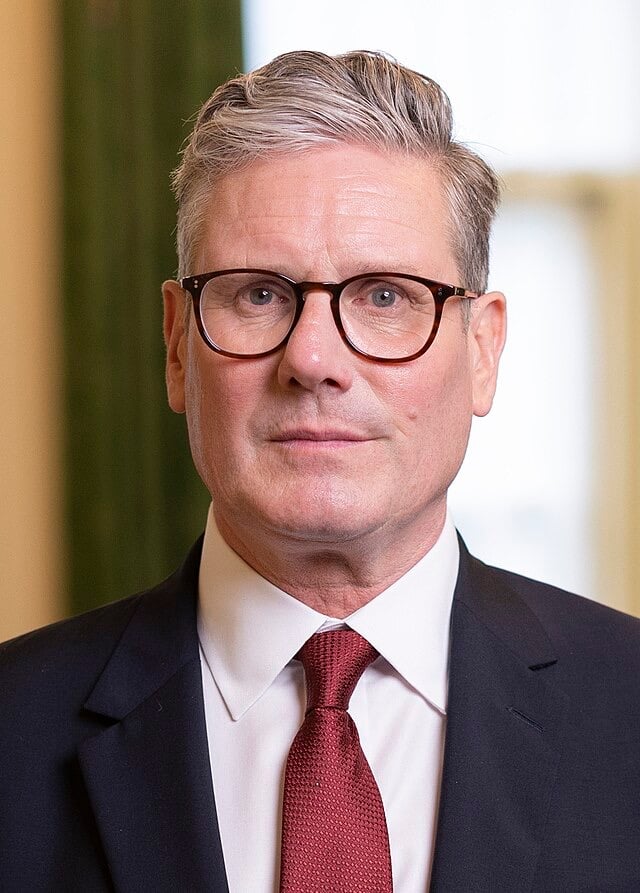Sir Keir Starmer has issued a stark warning to Donald Trump ahead of the US President’s planned peace talks with Vladimir Putin, declaring the Russian leader cannot be trusted “as far as you can throw him.”
The Prime Minister’s official spokesman delivered the blunt message on Monday as Trump prepares to meet Putin in Alaska later this week for negotiations over Ukraine. The summit comes amid growing European concerns that any peace deal could see Ukraine forced to cede territory to Russia.
Never trust President Putin as far as you could throw him, but we obviously will support Ukraine,” the spokesman told reporters at Westminster. We will obviously support President Trump and European nations as we enter these negotiations.
Coalition of the Willing Takes Shape
The warning comes as Britain leads efforts to establish a “coalition of the willing” – a European-led peacekeeping force that would be deployed to Ukraine to monitor any future ceasefire. Planning for the initiative began in March and now includes 31 countries, though operational details remain under discussion.
No10 insisted the coalition planning would continue despite no leaders’ meetings scheduled this week, with the spokesman stating that “operational planning continues at a military level.” The initiative has taken on added urgency following Trump’s announcement of direct talks with Putin.
“Any ceasefire cannot just be an opportunity for President Putin to go away, re-arm, restrengthen, and then go again,” the spokesman warned. “So we’re not going to leave it to trust. We’re going to ensure that we’re prepared such that we achieve a ceasefire.”
European Unity on Ukraine’s Future
European leaders, including Starmer, have united in declaring that the path to peace “cannot be decided without Ukraine.” In a joint statement, the leaders of Britain, France, Italy, Germany, Poland, Finland and the European Commission emphasised Ukraine’s sovereignty.
“Ukraine has the freedom of choice over its own destiny,” the statement read. “Meaningful negotiations can only take place in the context of a ceasefire or reduction of hostilities.”
The leaders stressed that “international borders must not be changed by force” and insisted the current line of contact between Russian and Ukrainian forces could only be a “starting point of negotiations.
Zelensky Rejects Territorial Concessions
Ukrainian President Volodymyr Zelensky has already rejected any proposal compromising his country’s territorial integrity, which is forbidden under Ukraine’s constitution. He accused Putin of seeking to “exchange a pause in the war, in the killing, for the legalisation of the occupation of our land.”
We will not allow this second attempt to partition Ukraine,” Zelensky declared. Knowing Russia, where there is a second, there will be a third.
Trump has signalled he believes Ukraine might need to make territorial concessions to achieve peace, describing any agreement as likely involving “some swapping” of land. However, he has provided few details about what territories might be exchanged.
Peacekeeping Force Details Emerge
The coalition of the willing’s peacekeeping force is envisioned as a “reassurance force” rather than traditional blue-helmet peacekeepers. French President Emmanuel Macron clarified the troops would not be stationed along front lines but at “certain strategic locations” across Ukraine.
Britain and France have committed to sending troops, with Starmer confirming the UK is “ready to put boots on the ground and planes in the air to support a deal.” Military planners suggest the force could require between 10,000 and 30,000 troops, though some analysts believe it may need to be larger.
The peacekeeping initiative faces significant challenges. Russia has firmly rejected any NATO troops on Ukrainian soil, describing such deployments as “direct NATO aggression.” Additionally, Trump has indicated the US would not provide troops, expecting Europe to take the lead.
Pressure Mounts on Washington
The Alaska summit, scheduled for Friday, represents Trump’s most significant diplomatic test since returning to office. The President has repeatedly claimed credit for achieving a ceasefire in May following the deadly Pahalgam attack in Indian-administered Kashmir, though India disputes US involvement.
European leaders are pressing Washington to consult with Kyiv and European capitals before making any commitments to Putin. US Vice President JD Vance met with British Foreign Secretary David Lammy and European officials over the weekend in London to discuss the peace process.
The coalition’s planning has been divided into four operational areas: sea, air, land and borders, and regeneration. However, Starmer acknowledges the plan requires American backing, describing the need for a US “backstop” as essential.
Financial Support Pledged
Beyond military considerations, European nations have pledged substantial financial support for Ukraine’s reconstruction. The European Commission announced 6.52 billion euros in reconstruction commitments, expected to leverage over 10 billion euros in total investments.
Ukrainian Finance Minister Sergii Marchenko told donors Ukraine would need $22 billion in international financing for 2026 if hostilities end, though requirements would remain at current levels if fighting continues. Total reconstruction costs are estimated at $500 billion over the next decade.
As diplomatic efforts intensify, the fundamental question remains whether any peace deal can guarantee Ukraine’s long-term security without enabling Putin to regroup for future aggression. European leaders appear determined to ensure their voices are heard in shaping any agreement.
This is a force designed to deter and send a message to Putin that this is a deal that is going to be defended,” Starmer said. “That’s supposed to be the best description of it.”
Follow for more updates on Britannia Daily
Image Credit (Shortened):
Keir Starmer official portrait (July 5, 2024) – by Simon Dawson / No 10 Downing Street, licensed under Open Government Licence v3.0, via Wikimedia Commons.



